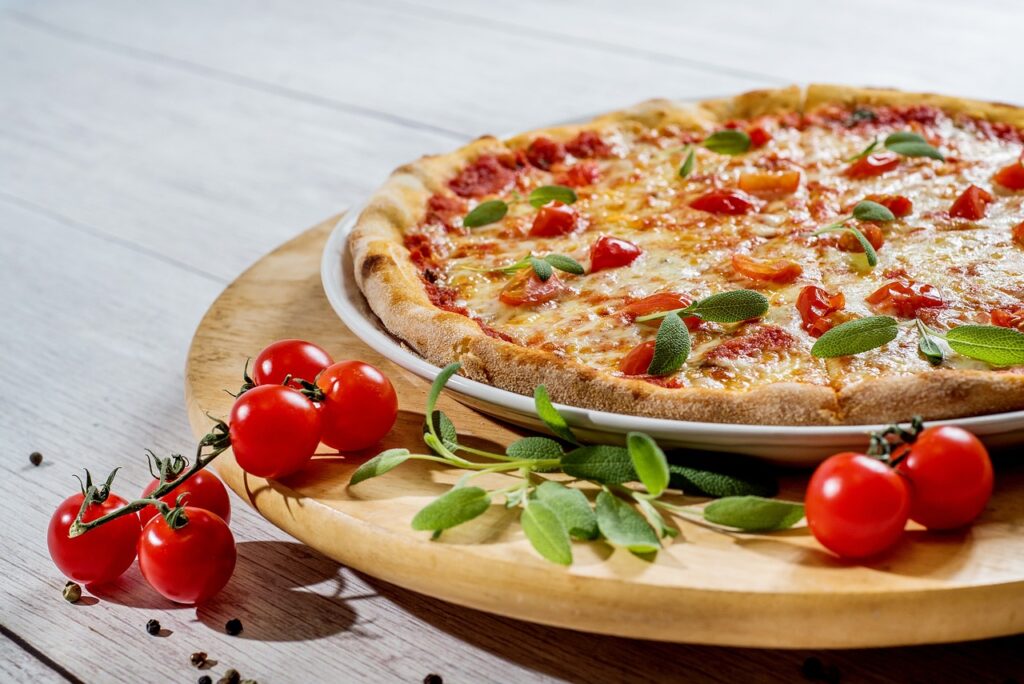The culinary landscape is a dynamic, ever-evolving realm, shaped by visionaries who not only master the stove but also redefine what it means to cook, eat, and experience food. From the meticulous precision of fine dining to the accessible charm of home cooking, these figures carve out legacies that resonate far beyond the kitchen. Their influence extends into popular culture, industry standards, and even the very fabric of our food systems, proving that a chef’s impact is truly global.
In this exploration, we delve into the careers of culinary maestros whose work has left an indelible mark on the industry. We’ll analyze their unique philosophies, groundbreaking techniques, and the significant contributions that have cemented their status as titans of taste. From those who brought exotic flavors to American homes to the architects of modern gastronomic movements, each story offers a glimpse into the dedication, innovation, and sometimes, the sheer force of personality required to ascend to the pinnacle of the food world.
Our journey through these influential careers is an analytical look at how individual brilliance can ripple through an entire sector. It’s an examination of how these figures have navigated the complexities of their craft, influencing generations of aspiring cooks and diners alike. They consistently push the boundaries of what is possible in the culinary arts, establishing enduring legacies of exceptional individuals.

1. **Anthony Bourdain: The Culinary Explorer Who Spoke Truth to Power** Anthony Bourdain carved a unique and irreplaceable niche within the culinary world, transcending the traditional role of a chef to become a revered voice for authenticity and cultural exploration. His career, marked by raw honesty and insatiable curiosity, began with a foundational education at the Culinary Institute of America in 1978. It was in the demanding kitchens of Manhattan, specifically as executive chef at Brasserie Les Halles, that he honed the practical skills and gathered the gritty experiences that would later define his narrative. This background provided him with an unparalleled perspective, grounding his future ventures in a deep understanding of the industry’s often brutal realities.
Bourdain’s ascent to global recognition was ignited by his candid essay in The New Yorker, a piece that pulled back the curtain on the unseen machinations of professional kitchens. This groundbreaking work paved the way for “Kitchen Confidential,” his bestselling book which cemented his reputation as a fearless storyteller willing to expose the unvarnished truths of the restaurant world. He eschewed the sanitized, celebrity chef persona, offering a visceral, unromanticized view that resonated deeply with both industry insiders and the general public. His willingness to challenge the status quo made him an essential, often critical, voice in culinary discourse, embodying the “Eater” spirit of informed analysis.
Beyond the written word, Bourdain became synonymous with adventurous culinary travel. Through acclaimed television programs like “A Cook’s Tour,” “No Reservations,” and “Parts Unknown,” he invited audiences to explore international cultures and cuisines, not as a tourist but as an empathetic observer. His passion for travel and profound engagement with the human experience, always framed through the lens of food, demonstrated a commitment to understanding the world through its diverse culinary traditions. He used his platform not just to showcase culinary skills, but to foster cross-cultural dialogue, making him one of the most significant cultural figures to emerge from the culinary landscape. His legacy endures as a testament to the power of food as a universal language and a tool for genuine connection.

2. **Gordon Ramsay: The Fiery Maestro of Culinary Excellence** Gordon Ramsay stands as an undeniable colossus in the global culinary arena, a British chef, restaurateur, and media personality whose name is synonymous with both exacting standards and explosive passion. His journey to the top is underpinned by serious culinary chops, beginning with the establishment of Gordon Ramsay Restaurants in 1997. This venture quickly evolved into an empire, characterized by an uncompromising pursuit of perfection that has earned his various establishments a staggering total of 17 Michelin stars over his career. His flagship restaurant, a testament to enduring excellence, has proudly maintained its coveted three Michelin stars since 2001, a remarkable feat in the notoriously competitive fine dining scene.
Ramsay’s distinct persona, defined by an intense demeanor, fiery temper, and brutally honest critiques, became a television phenomenon. Shows such as “Boiling Point” first brought his commanding presence to the public, setting the stage for a multitude of culinary programs that cemented his status as a household name. While his on-screen intensity often captures headlines, it stems from a deep-seated commitment to quality and a fierce desire to push individuals to their highest potential. This direct, often confrontational, approach has made him an engaging and impactful figure, consistently drawing in viewers eager to witness his no-holds-barred assessments of culinary talent and business acumen.
Beyond the theatrics, Ramsay’s significant impact on the hospitality sector is undeniable. His wide-ranging portfolio, encompassing Michelin-starred dining rooms, casual ventures, and a prolific career as an author, showcases a formidable entrepreneurial spirit. He has not only built a successful brand but has also contributed to raising the bar for culinary education and professional standards globally. His ability to blend high-octane entertainment with genuine culinary authority has positioned him as a leading and enduring figure in the culinary realm, constantly shaping the discourse around excellence and accountability in professional kitchens.
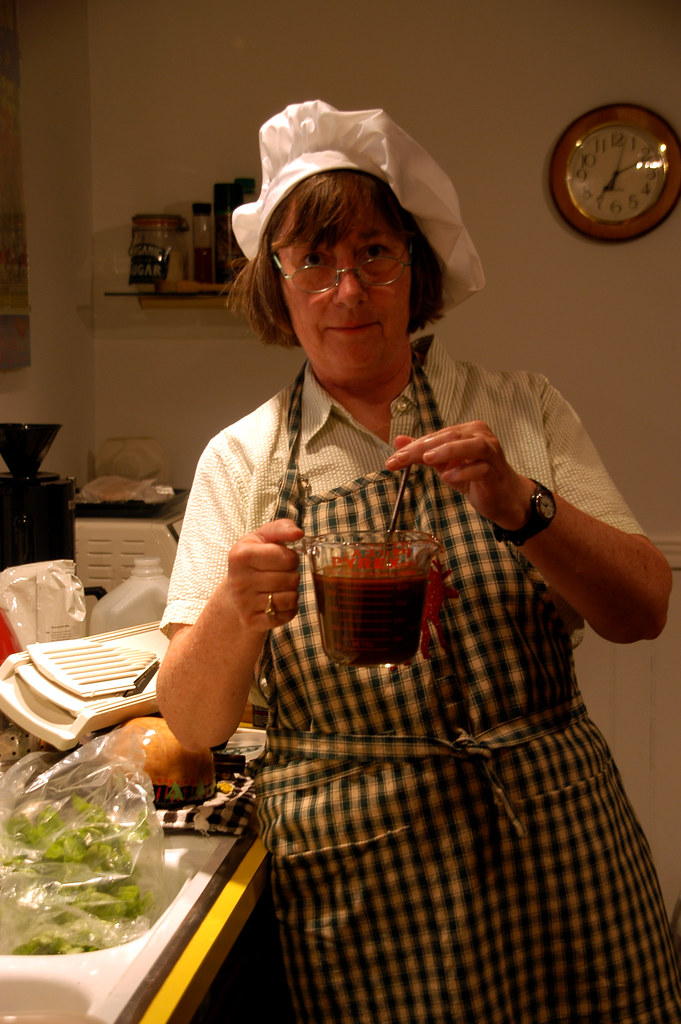
3. **Julia Child: The Matriarch Who Demystified French Cuisine** Julia Child remains an iconic figure in American culinary history, a trailblazer whose infectious enthusiasm and approachable methods fundamentally transformed the nation’s relationship with food. This renowned American chef, author, and television personality embarked on a mission to demystify French cuisine, an endeavor that seemed daunting and inaccessible to many home cooks. Her pioneering efforts were instrumental in bringing the sophisticated techniques and rich flavors of French culinary traditions from the rarefied world of haute cuisine into everyday American kitchens, significantly broadening the gastronomic horizons of an entire generation.
The cornerstone of her influence was “Mastering the Art of French Cooking,” an extraordinarily influential cookbook that served as a comprehensive, step-by-step guide to classic French dishes. This magnum opus was more than just a collection of recipes; it was an educational tool that empowered countless individuals to approach complex culinary tasks with confidence. Coupled with the unparalleled success of her television series, “The French Chef,” Child translated intricate concepts into digestible, engaging lessons. Her televised cooking demonstrations, often punctuated by her distinctive voice and joyful exclamations, turned daunting culinary challenges into achievable triumphs for her audience.
Child’s captivating teaching style, characterized by a blend of precision, patience, and palpable passion for food, endeared her to millions. She embraced culinary mishaps with grace and humor, making the learning process feel relatable and fun. This authenticity cemented her status as a beloved figure in the culinary industry, inspiring not only legions of home cooks to explore new flavors and techniques but also motivating professional chefs to uphold high standards. Her legacy is a testament to the power of education and inspiration, proving that a genuine love for food, shared with generosity, can leave an enduring and profoundly positive impact on a nation’s culinary identity.
4. **Marco Pierre White: The Enfant Terrible Who Forged Culinary Legends** Marco Pierre White, a name synonymous with both brilliance and rebellion in the British culinary landscape, stands as a truly celebrated figure whose influence reverberates through generations of chefs. His formidable talent and uncompromising vision earned him a groundbreaking distinction in 1995: he became the first British chef to be awarded three Michelin stars. This achievement was not merely a personal triumph but a pivotal moment for the UK restaurant scene, shattering long-held perceptions and establishing a new benchmark for excellence. It was a testament to his exceptional culinary skills and an innovative approach that pushed the boundaries of traditional gastronomy.
Often dubbed “the first celebrity chef,” White cultivated an aura of rockstar intensity in the kitchen, a persona that captivated the public and redefined the image of a culinary artist. His kitchens were renowned as crucibles of talent, where a relentless pursuit of perfection was the only acceptable standard. This demanding environment, though challenging, proved to be an invaluable training ground for an impressive roster of future culinary stars. Notably, he mentored and shaped the careers of several accomplished chefs who would themselves go on to achieve international fame, including Mario Batali, Gordon Ramsay, and Curtis Stone. This lineage of talent underscores White’s profound impact as an educator and a catalyst for professional development within the industry.
White’s lasting legacy extends beyond his Michelin stars and impressive list of protégés. He instilled a culture of rigorous discipline and creative audacity that continues to inspire. His narrative is one of raw ambition, technical mastery, and a willingness to challenge conventions, making him a compelling figure in any analysis of modern culinary history. Through his unparalleled contributions, Marco Pierre White didn’t just earn accolades; he profoundly altered the trajectory of the British restaurant scene, proving that true culinary innovation often emerges from a blend of fierce dedication and an unwavering, almost artistic, vision.

5. **Wolfgang Puck: The Architect of California Cuisine’s Global Empire** Wolfgang Puck, the celebrated Austrian chef and restaurateur, embodies a unique blend of classical European training and an unbridled spirit of innovation that has indelibly shaped the global culinary landscape. Renowned for his creative culinary style, Puck’s genius lies in his pioneering fusion of traditional cooking methods with vibrant contemporary flavors. This audacious approach didn’t just create delicious food; it sparked a revolution, contributing significantly to the rise of what became known as California cuisine. His influence can be traced through countless menus and cooking philosophies around the world, making him a true game-changer in how we think about fresh, regional ingredients combined with international techniques.
Puck’s impact extends far beyond the kitchen. He has masterfully built a successful worldwide network encompassing an impressive array of restaurants, high-profile catering services, a prolific output of cookbooks, and even a line of kitchen products. This expansive empire speaks to his keen business acumen and his ability to translate a sophisticated culinary vision into accessible, aspirational experiences for a broad audience. He recognized early on the power of branding and the potential to bring gourmet sensibilities to diverse dining formats, from casual cafes to the most exclusive red-carpet events. His consistent presence across multiple sectors underscores his versatility and enduring appeal.
Through his innovative dishes and groundbreaking culinary creations, Puck has not only delighted palates but also garnered numerous prestigious awards, firmly establishing him as a leading figure in the culinary world. His dedication to excellence is evident in every venture, from the meticulous preparation in his fine dining establishments to the accessible quality of his everyday products. Wolfgang Puck’s passion for food, combined with his entrepreneurial drive and commitment to pushing creative boundaries, continues to inspire chefs, restaurateurs, and food enthusiasts globally. His career serves as a powerful testament to the idea that culinary artistry, when paired with vision, can build an empire that redefines an entire industry.
6. **Heston Blumenthal: The Alchemist of Multi-Sensory Gastronomy** Heston Blumenthal, an English celebrity chef, television personality, and food writer, is arguably one of the most innovative and intellectually stimulating figures in modern gastronomy. His reputation is built upon a revolutionary multi-sensory cooking style that challenges conventional perceptions of food and flavor. Blumenthal is not content with merely satisfying taste buds; he aims to engage all five senses, crafting dining experiences that are as theatrical and thought-provoking as they are delicious. This distinctive approach has earned him global recognition, positioning him as a vanguard in the ongoing evolution of haute cuisine.
His culinary laboratory has yielded a spectacular array of unique dishes that have become legendary. Creations such as “bacon-and-egg ice cream” and “snail porridge” exemplify his daring spirit and willingness to subvert expectations, transforming familiar ingredients into unexpected and delightful forms. Yet, his genius isn’t confined to the avant-garde; Blumenthal has also demonstrated a profound ability to elevate and popularize classics, giving them a scientific and perfected twist. His triple-cooked chips and soft-centered Scotch eggs are celebrated examples of how rigorous experimentation can transform comforting staples into extraordinary culinary statements, showcasing a meticulous attention to detail that is rare even in fine dining.
At the heart of Blumenthal’s philosophy is a profound emphasis on a scientific approach to cooking, dissecting ingredients and techniques to understand the fundamental mechanics of flavor and texture. This intellectual rigor, combined with his undeniable creativity, has earned him numerous honorary degrees and prestigious awards for his unparalleled culinary contributions. His restaurants, most notably the acclaimed three-Michelin-starred Fat Duck in Bray, are not just eateries but destinations for gastronomic pilgrimage, renowned for their immersive and transformative dining experiences. Beyond his establishments, Blumenthal’s presence on TV series and collaborations, such as his product line with Waitrose, further extend his influence, making him a true iconoclast who continuously pushes the boundaries of what food can be.
Mastering the Craft: Delving into the Legacies of Six Additional Culinary Titans Known for Their Foundational Techniques, Innovative Concepts, and Profound Impact on Modern Dining and Sustainability
Continuing our analytical journey through the pantheon of culinary giants, this section illuminates the achievements of six more chefs whose dedication, inventiveness, and foresight have cemented their places in gastronomic history. These individuals represent the diverse facets of culinary genius, from those who laid the very groundwork of professional kitchens to contemporary figures championing sustainability and avant-garde dining. Their contributions extend beyond exceptional dishes, influencing how we perceive food, training future generations, and even shaping global food systems. Each story reinforces the idea that true mastery in the kitchen is often a blend of rigorous technique, visionary thinking, and an unwavering commitment to culinary evolution.

7. **Auguste Escoffier: The Architect of Modern French Cuisine and Kitchen Organization** Auguste Escoffier, a renowned French chef, restaurateur, and culinary writer, stands as an indisputable colossus in the history of gastronomy, often credited with revolutionizing and streamlining traditional French cooking techniques. Born in 1846, his work in the late 19th and early 20th centuries fundamentally reshaped the professional kitchen, moving it away from the chaotic excesses of previous eras towards a system of efficiency, elegance, and precision. He was not merely a chef; he was an innovator who saw the potential for order and refinement where others saw only tradition.
Escoffier’s most enduring contributions include the modernization of the intricate methods pioneered by Marie-Antoine Carême. He famously standardized the recipes for the five mother sauces, a cornerstone of French cuisine that remains a foundational element taught in culinary schools worldwide. This act of codification brought consistency and clarity to complex preparations, making classic dishes more accessible and repeatable, and elevating the overall quality of fine dining. His meticulous approach provided a tangible framework for culinary excellence that had been previously lacking in such a systematic form.
Beyond recipes, Escoffier profoundly influenced kitchen culture by emphasizing the importance of cleanliness, discipline, and organization. Crucially, he introduced the brigade de cuisine system, a hierarchical structure that assigned specific roles and responsibilities to each member of the kitchen staff. This system, still prevalent in numerous restaurants today, transformed the kitchen into a well-oiled machine, fostering efficiency, clear communication, and a professional environment that allowed for the seamless execution of even the most elaborate menus. His successful collaboration with hotelier César Ritz further solidified his impact, leading to the flourishing of prestigious establishments in London and Paris.
The lasting impact of Escoffier is perhaps best encapsulated in his influential work, *Le Guide Culinaire*. This comprehensive reference book, first published in 1903, remains a key reference in the culinary realm, providing a vast collection of recipes and culinary principles that have guided generations of chefs. His legacy is one of bringing structure, respect, and a distinct methodology to the culinary arts, transforming cooking from a mere craft into a highly organized and esteemed profession that continues to thrive on his foundational principles.
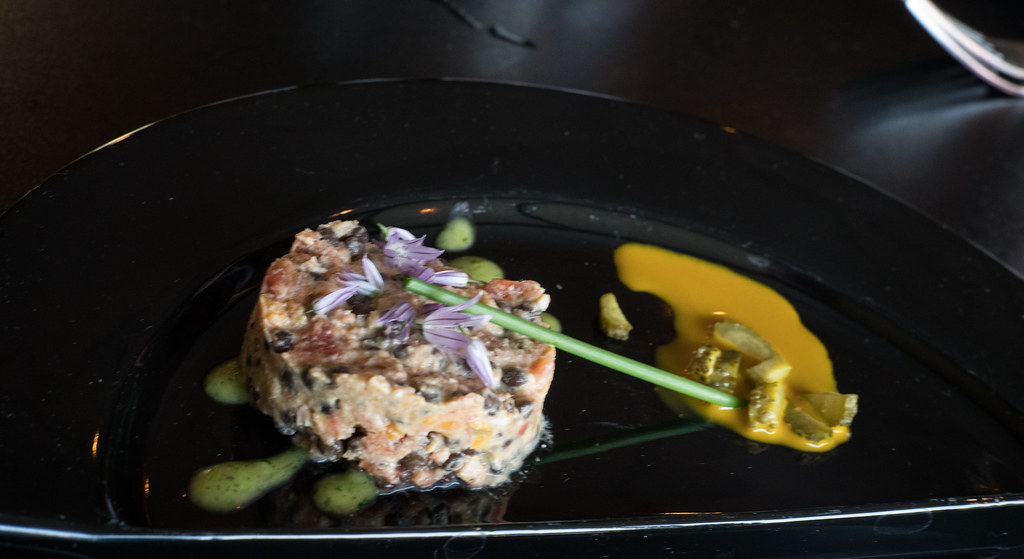
8. **James Beard: The Champion of American Cuisine and Culinary Education** James Beard was a transformative figure in the culinary world, renowned for his multifaceted impact as an American chef, cookbook author, teacher, and television personality. Often hailed as the “Dean of American Cookery,” Beard’s pioneering work was instrumental in elevating American cuisine and advocating for the use of fresh, high-quality, local ingredients long before it became a widespread movement. He instilled a sense of pride in American culinary traditions at a time when French cuisine was often considered the benchmark of sophistication, proving that American food possessed its own unique and valuable identity.
His career was marked by significant contributions to culinary education. Beard was a pioneer in television cooking shows, bringing culinary instruction directly into American homes and making sophisticated cooking accessible to a broader audience. He also established The James Beard Cooking School, which became a vital institution for aspiring chefs and home cooks seeking to refine their skills and deepen their understanding of food. Through these platforms, he mentored countless chefs and food enthusiasts, sharing his vast knowledge with warmth and generosity, fostering a new generation of culinary talent.
Beard’s advocacy for American cuisine was unwavering. He believed in celebrating the bounty of local produce and regional specialties, encouraging cooks to explore and appreciate the diverse culinary landscape of the United States. His extensive collection of published books—a testament to his prolific career—continues to serve as a rich resource, preserving and promoting American culinary heritage. These works are not merely recipe collections but narratives that capture the essence of American dining, inspiring readers to cook with passion and purpose.
His legacy endures most prominently through the prestigious James Beard Awards. Established after his death, these awards are considered among the highest honors in the culinary arts in the United States, recognizing excellence in chefs, restaurateurs, cookbook authors, and food journalists. The James Beard Foundation, an organization dedicated to celebrating, nurturing, and honoring America’s diverse culinary heritage, ensures that his vision of a vibrant and respected American food culture continues to thrive, cementing his status as a foundational pillar of modern American dining.

9. **Joël Robuchon: The Quintessential Chef of the Century** Joël Robuchon, a revered French chef and restaurateur, achieved unparalleled distinction in the culinary world, earning the moniker “Chef of the Century” from the influential Gault Millau guide in 1989. This accolade was a testament to his extraordinary talent, meticulous approach, and unwavering pursuit of perfection that defined his illustrious career. His journey began with the prestigious Meilleur Ouvrier de France award in 1976, an honor that immediately marked him as a master craftsman in his native France, signaling the arrival of a culinary force who would redefine haute cuisine for decades to come.
Robuchon’s culinary philosophy was characterized by an almost minimalist elegance, emphasizing the purest expression of high-quality ingredients. He believed in presenting dishes with clarity and precision, allowing the natural flavors to shine without unnecessary embellishment. This approach, while seemingly simple, required an exceptional level of technical skill and an unparalleled understanding of flavor profiles, which he demonstrated consistently in his acclaimed establishments. He also contributed significantly to the culinary discourse through his cookbooks and by heading the Larousse Gastronomique committee.
His global impact was immense, as he oversaw more than a dozen highly regarded restaurants worldwide, each bearing his signature commitment to excellence. These establishments, spanning from Paris to Tokyo and New York, consistently earned the highest praise, culminating in an astonishing achievement: amassing an impressive 31 Michelin Guide stars in 2016, the highest held by any restaurateur. This unprecedented collection of stars solidified his reputation as not just a leading chef of his time, but as one of the greatest chefs in history, a figure whose standards became the very benchmark for fine dining on a global scale.
Robuchon also hosted culinary TV programs, sharing his expertise and passion with a wider audience. His ability to create luxurious yet approachable dining experiences, coupled with his dedication to training and inspiring new generations of chefs, ensured his profound influence would continue long after his passing. His legacy is that of a visionary who elevated French cuisine to new heights, proving that meticulous attention to detail and an uncompromising commitment to quality can achieve truly legendary status.
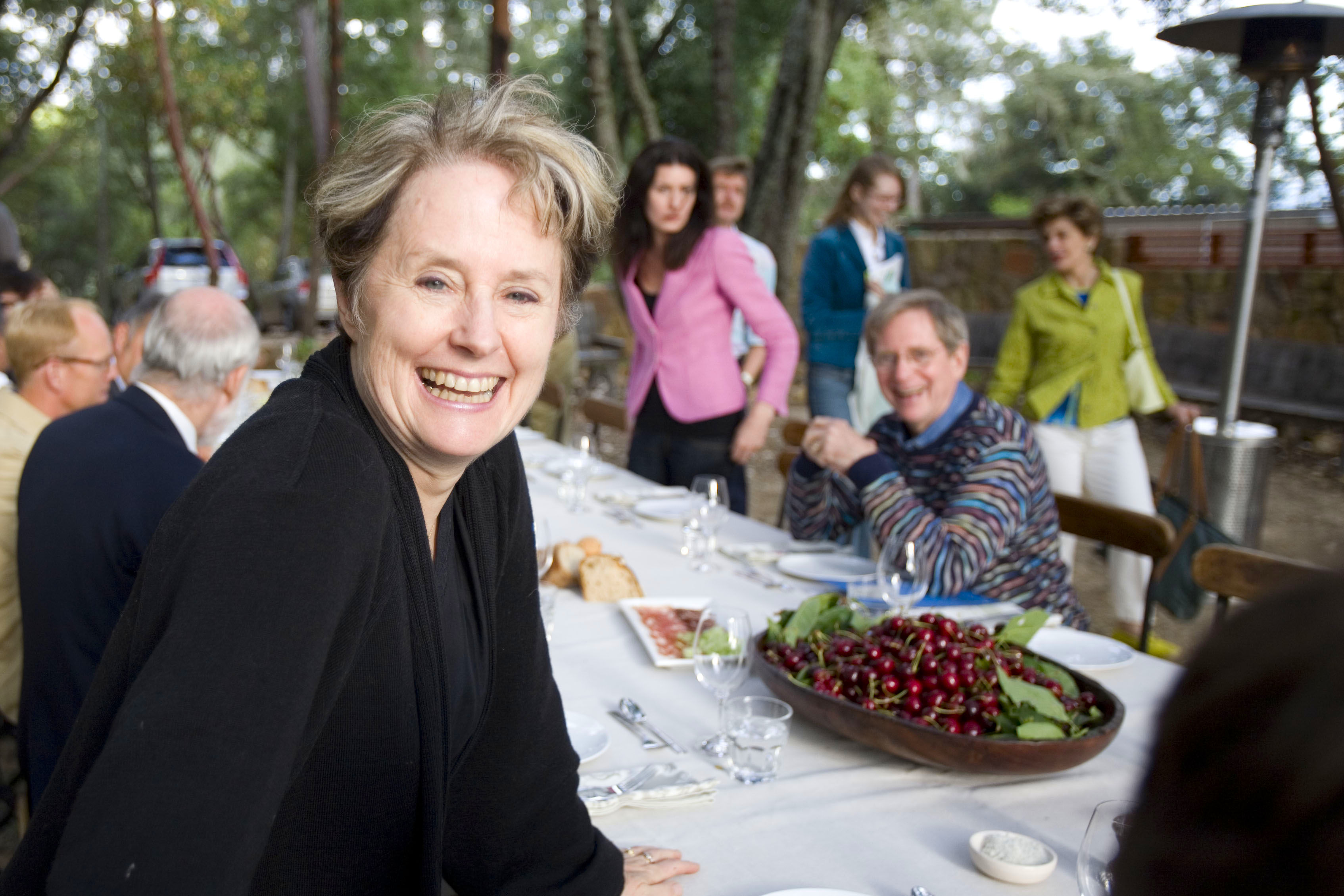
10. **Alice Waters: The Pioneer of Farm-to-Table and Sustainable Gastronomy** Alice Waters is a renowned American chef, restaurateur, and author, celebrated for her groundbreaking contributions to the farm-to-table movement and the development of California cuisine. Her vision, rooted in a deep respect for seasonal, locally sourced ingredients, sparked a culinary revolution that reshaped American dining and continues to influence global food systems. In 1971, she established Chez Panisse in Berkeley, California, a restaurant that became not just an eatery but a manifesto for a new way of thinking about food, challenging the industrial food system and advocating for a return to simpler, purer flavors.
Waters’ innovative approach focused on creating menus that were dictated by what was fresh and available from local farmers, foragers, and ranchers, rather than relying on imported or out-of-season produce. This philosophy ensured that every dish served at Chez Panisse was a celebration of peak flavor and quality, forging direct relationships with producers and inspiring countless other chefs to adopt similar practices. Her commitment to showcasing the intrinsic beauty of ingredients, prepared with minimal fuss, transformed the perception of what constitutes fine dining.
Beyond her restaurant, Waters became a passionate advocate for universal access to healthy, organic foods, extending her influence far beyond the kitchen. She is the founder of the Chez Panisse Foundation and the Edible Schoolyard program, initiatives that empower children with hands-on learning experiences in gardens and kitchens, fostering an understanding of food origins and healthy eating habits. These programs exemplify her dedication to creating a more sustainable and equitable food system, proving that food can be a powerful tool for social change and education.
Waters has played a key role in influencing public policy and initiatives, notably inspiring Michelle Obama’s White House organic vegetable garden program. Her numerous books on cooking and her memoir, “Coming to My Senses,” further articulate her philosophy, making her a prominent voice in the discourse around food, sustainability, and education. Alice Waters’ enduring legacy is her profound impact on how we source, prepare, and appreciate food, cementing her status as a true visionary who connected gastronomy with environmental and social responsibility.
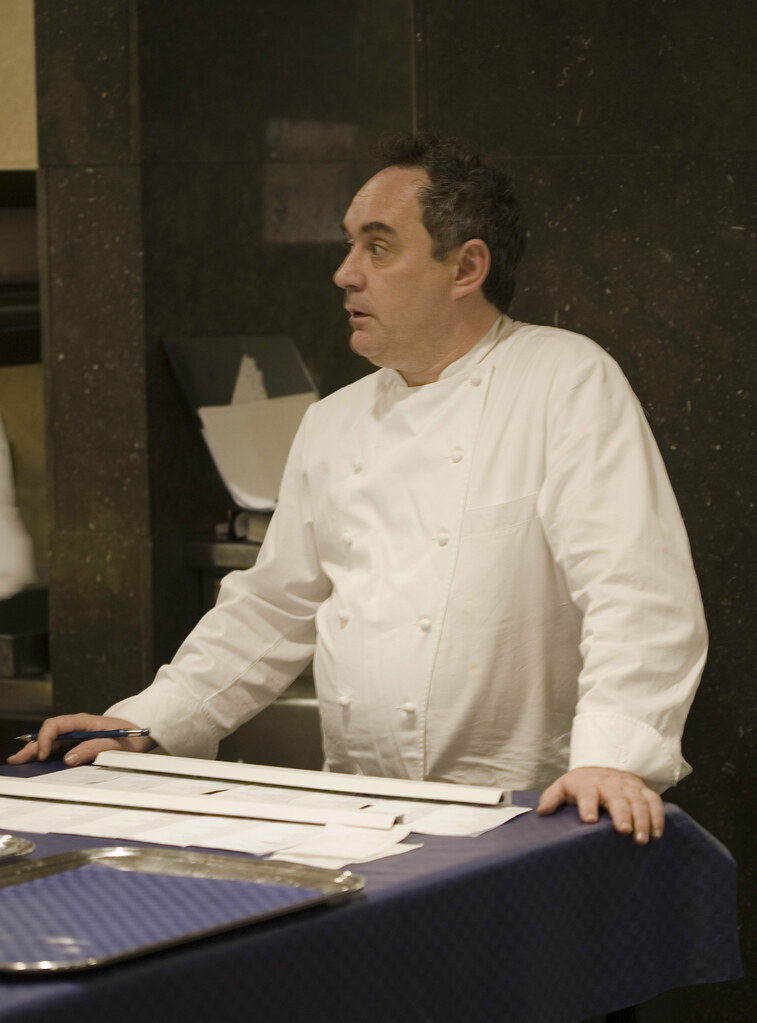
11. **Ferran Adrià: The Avant-Garde Maestro of Culinary Innovation** Ferran Adrià Acosta is a Spanish chef renowned for his revolutionary culinary methods and inventive approach to gastronomy, fundamentally altering the landscape of fine dining in the late 20th and early 21st centuries. Celebrated as one of the world’s top chefs, Adrià gained international fame through his leadership at El Bulli restaurant in Roses, Spain, which became a global pilgrimage site for food enthusiasts and culinary professionals alike. Under his guidance, El Bulli was not merely a restaurant but a research laboratory where the boundaries of culinary possibility were continuously pushed.
Adrià’s innovative and avant-garde cooking style, often associated with molecular gastronomy, emphasized deconstruction, experimentation with textures, and the surprise element. He challenged traditional notions of what food should look, feel, and taste like, creating dishes that were intellectual exercises as much as they were sensory delights. His creations, such as “culinary foams” and “spherification,” became iconic, inspiring a new generation of chefs to think beyond conventional techniques and embrace scientific principles in their kitchens. He believed in provoking and enchanting diners with unexpected combinations and preparations.
The profound impact of Adrià’s work on the culinary sphere cannot be overstated. He not only brought El Bulli to be named the best restaurant in the world multiple times but also established a new paradigm for gastronomic creativity. His approach encouraged chefs worldwide to explore the chemistry and physics of cooking, leading to a global movement of experimental cuisine. He teamed up with his brother, Albert Adrià, a distinguished pastry chef, on multiple ventures, further cementing his status as a trailblazer in the culinary field, pushing the limits of what food could be.
Adrià’s legacy is defined by his fearless experimentation and intellectual curiosity, which transformed the dining experience into an art form. He demonstrated that cooking could be a vehicle for profound creativity and intellectual exploration, making him a pivotal figure in modern culinary history. His influence continues to resonate in contemporary kitchens, as chefs still draw inspiration from his pioneering spirit and commitment to rethinking every aspect of food preparation and presentation.
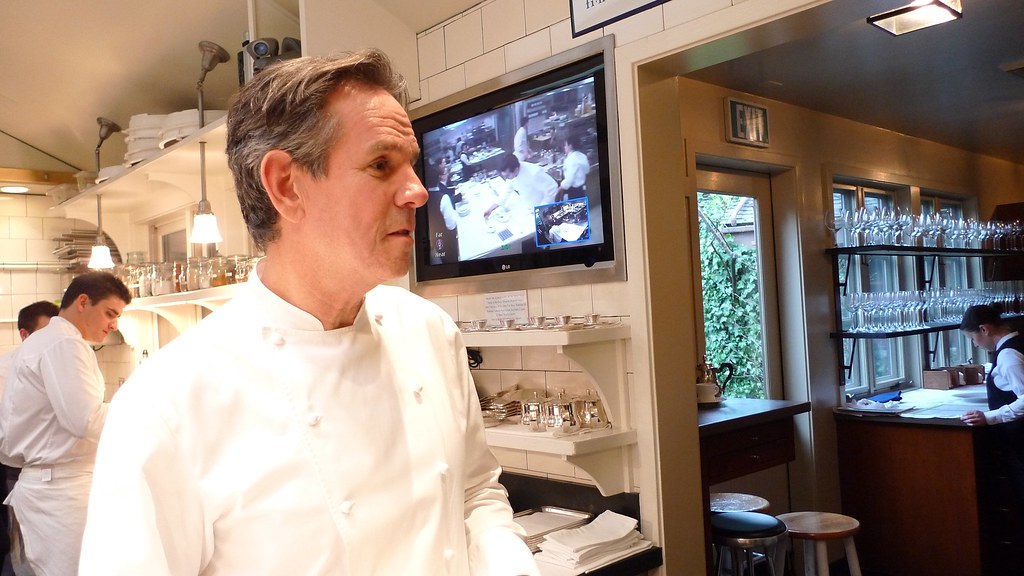
12. **Thomas Keller: The Quintessence of American Fine Dining Excellence** Thomas Keller, a renowned American chef and restaurateur, stands as a paragon of culinary excellence, recognized globally for his iconic establishments, The French Laundry in Yountville, California, and Per Se in New York City. His career is a testament to meticulous technique, unwavering consistency, and a relentless pursuit of perfection that has elevated American fine dining to an international standard. Keller’s philosophy centers on the idea of precision and respect for ingredients, executed with a level of detail that few can match.
Keller has achieved a distinction almost unparalleled in the culinary world: he is the sole American chef with three-star Michelin ratings for two restaurants concurrently – The French Laundry and Per Se. This extraordinary feat underscores his exceptional culinary skill and his ability to consistently deliver an impeccable dining experience across multiple high-stakes venues. His culinary ventures have amassed a total of seven Michelin stars, cementing his reputation as a leading figure in the culinary world and a benchmark for contemporary gastronomic achievement.
His influence extends beyond the accolades, shaping the expectations of diners and inspiring countless aspiring chefs. Keller’s kitchens are known for their rigorous training and a culture of continuous improvement, fostering an environment where young talents can hone their craft under the tutelage of a true master. He approaches cooking with an intellectual curiosity, meticulously refining classic dishes while pushing innovative boundaries, always with an eye towards flavor, texture, and presentation. His cookbooks, notably *The French Laundry Cookbook*, are considered essential texts for serious cooks and culinary students.
Through his dedication to excellence and his passion for food, Thomas Keller continues to inspire chefs and food enthusiasts worldwide. His work exemplifies a profound commitment to the craft, demonstrating that classic techniques, when combined with contemporary sensibility and an exacting eye for detail, can create enduring culinary legacies. He has not only created some of America’s most celebrated dining experiences but has also profoundly influenced the professional standards and artistic aspirations of an entire industry.
As we conclude this exploration of culinary titans, it becomes clear that the world of gastronomy is a rich tapestry woven by countless threads of innovation, tradition, and boundless passion. From the meticulous organizational systems of Escoffier to the farm-to-table ethos of Waters, the rigorous precision of Robuchon and Keller, the boundary-pushing creativity of Adrià, and the enduring advocacy of Beard, these chefs have not just fed us; they have challenged, inspired, and ultimately transformed our understanding of food. Their legacies are not just found in cookbooks or Michelin guides, but in the countless meals savored, the techniques passed down, and the ongoing evolution of a global culinary landscape that continues to be shaped by their remarkable visions. Their stories serve as a powerful reminder that at the heart of every great dish lies an even greater story of dedication, artistry, and an unyielding commitment to culinary mastery.


